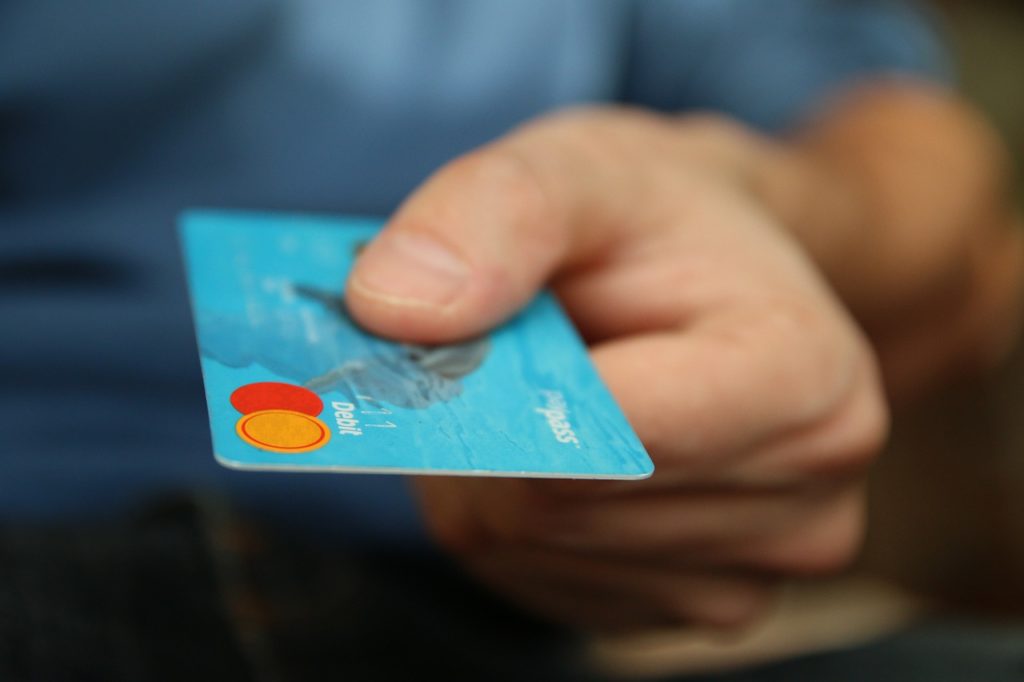Managing Debt is Critical – Here’s How I Finally Managed Mine.
My personal story is part of what drives me to help others manage their personal finances.
Growing up, my parents provided very few examples of how to manage money. I could tell you stories that would amaze you. Here’s one of the tamer ones: One of my first errands after acquiring my driver’s license was to go down to our local utility company to pay the outstanding balance and have our electricity turned back on. (If we meet, feel free to ask for others.) To say the least, I did not learn the skills I needed to optimize credit decisions when I entered college, nor was there a plan in place for how I was to get through four years of school on a limited budget.
As a result, after doing all I could to stay in school, including meeting with Duke’s president to get some additional aid and calling senators and congressmen from my home state of New Jersey to share my thoughts on proposed changes to student loan eligibility, I was forced to leave school for a couple of years to work. After those debts were repaid, I went back to school, but at Rutgers, instead of Duke. While I worked part-time upon my return, I also paid for a portion of my tuition and rent with credit cards. I did not think much about building credit card debt. Unfortunately, I did not have much choice.
I ended up paying interest on those debts, which equated to roughly 5%-10% of my annual income!
A Plan Emerged
I can still recall looking at those statements and being horrified when I realized how much I had paid in interest – and how little went toward the balance.
I knew paying the minimum payment on each card would not help reduce the balance. It was then that I knew I needed a plan.
I elected to focus on paying off one card at a time. That approach reduces interest costs the most. Why? Once a card’s balance is reduced to zero, the account no longer accumulates additional interest. It also means that if you want or need to use a card to make a future purchase, and you know you can (and will) pay the balance in full when the bill comes, you can use that credit card without paying interest on future purchases.
The Approach to Debt Paydown
The first step is deciding whether you want to pay down your debt.
From there it’s critical to have a budget, or at least set spending limits.
When you pay interest on your credit card balances, you effectively increase the amount you pay for everything you buy with those cards. Hence, it’s important to reign in new purchases. For existing balances, as I found, earmarking cash to repay debt above and beyond the interest payment is necessary to reduce your balance.
I also benefited from setting a date, by which I expected to pay down each card balance. Setting some interim targets along the way also helped. I made these goals realistic and achievable. Plus, I monitored my progress and received a sense of accomplishment from achieving the interim goals. I highly recommend interim goals for positive reinforcement, as you make progress in completing the task.
A final note on budgeting – depending on your personality and behavioral traits, you probably do not want to be in a situation where you do not allow yourself to do anything fun or enjoyable. It should not be all work and no play. That is simply not healthy. At the same time, remember that there are plenty of ways to have fun without spending a lot of money.
How Did it Work Out?
My first job after graduating from college was with one of the major accounting firms. I admit that I got a bit lucky, as I was assigned to an out-of-town engagement for roughly three months. This allowed me to keep my expenses down and helped me pay off my credit cards earlier than planned.
I learned my lesson, as I have regularly paid my credit card bills in full ever since. By doing this, I have avoided credit card interest charges. It took a little longer to pay off my student loans, but the cost associated with those was a lot less. I recently wrote a blog about applying for financial aid and scholarships. It included tips to help manage the process and potentially increase your award.
I started saving for retirement when my employer started a 401(k) with a company match — something everyone should take advantage of, if possible. It’s important to start saving as soon as possible. After all, time in the market can be even more important than just being “in” the market.
Some Final Thoughts
The financial difficulties I faced growing up helped me become more responsible about money. My experiences, as well as being a parent, have also helped me realize our educational system does not provide much in the way of financial education. As a result, providing financial education to those who want it is part of Apprise’s mission statement.
While everyone’s facts and circumstances are different, the high interest rates associated with credit card debt can hurt anyone’s ability to get and/or do the things they want both now and in the future. It can also keep you from saving for retirement.
Creating a budget and making a plan to reduce debt are important elements of planning for your financial future. If you would like to discuss these issues with us, please complete our contact form, and we will be in touch.
Follow us:
Please note that we post information about articles we think can help you make better decisions about money on LinkedIn and Facebook.
For firm disclosures, see here: https://apprisewealth.com/disclosures/





